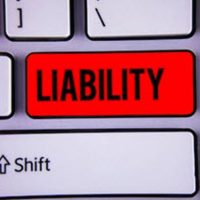Explaining Florida’s Vicarious Liability Doctrine

Normally, when a person is sued in civil court, they must accept the court’s punishment if they are found liable for causing harm. In accidents involving commercial motor vehicles (CMVs), however, the driver of the vehicle in an accident may not be the only defendant facing liability under Florida law. Florida observes a common-law doctrine known as vicarious liability that states an employer will be liable for legal wrongs committed by their employees, as long as the employee was acting in the scope of their employment at that point in time. If you have been injured in a tractor-trailer accident, this doctrine may help you recover damages for the harm you suffered.
A Doctrine To Establish Civil Liability
Vicarious liability, sometimes known as ‘respondeat superior’ (‘let the master answer’), is a doctrine that dates back to English common law, on which the nucleus of U.S. law is based. Essentially, it holds that a person or entity that employs a tortfeasor (a person who has committed a tort, which is basically the civil version of a crime) should bear some responsibility for that employee’s behavior if that behavior is negligent – after all, in many situations, the tortfeasor may only be in that position because their employer put them there.
The classic example of this is a commercial vehicle driver who causes an accident while acting within the scope of their employment. If the driver is, say, trying to get to a destination to deliver cargo, and negligently causes a crash that harms someone, their employer may also be liable for the injuries caused to an injured plaintiff. However, there are strict points that must be established in order to hold the driver (or their employer) liable.
The ‘Scope Of Employment’
Perhaps the most important question to answer is whether or not the employee was acting within the scope of employment at the time of the accident. The question of whether or not an employee is acting ‘within the scope of [their] employment’ can be a difficult one, but it is crucial, as merely being on the clock is not sufficient to establish that. If an employee is shown to be on a “frolic” – essentially, a break where they are acting for their own reasons – their employer will not be held liable for any torts the employee commits.
Florida case law establishes three main criteria that have to be established before it can be said that an employee was acting within the scope of their employment (and thus, placed their employer on the proverbial hook). They are:
- The conduct in question must be the type for which the employee was hired to perform – for example, if a person was hired to drive a truck, and was driving a truck at the time of the accident, this would fulfill this requirement;
- The conduct must have occurred “within the time and space limits” of the worker’s employment – for a commercial driver, this would be within the vehicle, on the employer’s premises, or at a host of other locations; and
- The conduct must have been motivated, at least partly, by a desire to further their employer’s business.
If an injured plaintiff can establish that these criteria are met in their accident case, both the CMV driver and their employer stand a good chance of being held liable for any injuries that the accident has caused.
Contact A Tampa CMV Accident Attorney
Commercial motor vehicle accidents are complex, but the right attorney can help you prevail against a negligent operator. A Tampa CMV accident attorney from the Rinaldo Law Group will work hard to protect your rights and give you the best possible chance at trial. Call our office today for a free consultation.












